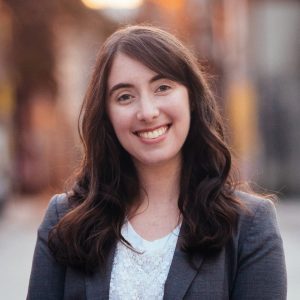A New Dose of Mindfulness: Monthly Sessions Open for DLSPH Students, Staff & Faculty
October 21/2019
By Françoise Makanda, Communications Officer at DLSPH
Elli Weisbaum remembers the meal’s colour, its flavour and the sound it made as she sat quietly at the table at her first meditation retreat when she was 10 years old. Weisbaum’s family would attend retreats every year when she was younger.
Within five days, she became acquainted with mindfulness.
“As a kid, you’re not thinking about settling your mind, checking-in with yourself and all these evidence-based things. You’re thinking about how a grape will taste. That can be the beginning of mindfulness practice,” says the PhD candidate in the Faculty of Medicine.
Now, as a PhD candidate, she’s bringing her personal and professional experience of mindfulness with pilot sessions to DLSPH students, faculty and staff this Fall. She is currently in the process of writing her thesis on the potential impact of mindfulness on physician well-being with supervisor and DLSPH Professor Blake Poland.
“People often imagine mindfulness as sitting in a room with their eyes closed on a cushion, just meditating. That is absolutely part of it, but it is a method. In the broader practice of mindfulness, we explore our own minds, and we develop a language and approaches to understanding ourselves more deeply, so mindfulness is not limited to the act of meditating,” says Weisbaum.

Elli Weisbaum
In the last year, she has hosted sessions at U of T’s Faculty of Law, hospitals around the GTA, Queen’s and Western University. Her sessions have even led her to Harvard. The feedback along with her experiences collaborating with faculty from the Applied Mindfulness and Meditation Certificate program at UofT’s School of Continuing Studies, has informed the monthly topics for the DLSPH sessions.
For Weisbaum, one intent of mindfulness is to encourage participants to cultivate their beginner’s mind, a concept that can be conceptualized as our younger selves’ ability to experience life without assumptions or expectations. Imagine a child who sees the snow or ocean for the first time, she says, it’s a state that Weisbaum hopes participants can experience.
“We want to broaden the conception of mindfulness to apply to activities like submitting a proposal or engaging in a difficult conversation with a stakeholder. Mindfulness can be a great skill set across our work,” she says.
Weisbaum’s sessions are not just presentations. She encourages participants to apply the learnings through hands-on experiences. The first session explores mindfulness’ foundations and week-by-week, she explores topics like the burden of perfectionism and the science behind emotions. Participants will learn to understand how their bodies react when faced with stress and how to bring themselves back into a space that helps them reconnect with the beginner’s mind. Each session includes activities that foster group engagement and community-building.
“Self-care can feel self-indulgent, but the real intention behind these sessions is to broaden our concept of mindfulness beyond meditation and how it integrates into daily life so that you can take care of your well-being while studying at the same time,” says Weisbaum.
As a graduate student, Weisbaum experiences her own share of struggles. The academic space is filled with stressors that can make students anxious, she adds. Although U of T has launched campus-wide initiatives like Mindful Moments, a group of interdisciplinary collaborators felt that DLSPH could benefit from its own program.
“I think that when we have such passion for the work we do, it brings a lot of potential additional stressors that can really add to what we take on, personally, systemically and professionally. We need a space to be able to offer self-care and community building and to build the capacity to skillfully interact with ourselves and others,” said Weisbaum.
Even with her busy schedule, Weisbaum lives mindfully. She admits it is hard, even for her, to get back to her beginner’s mind, but she uses these sessions as a reminder to practice these skill-sets.
“These sessions are a gift to yourself to check-in and connect with others that’s beyond just networking.”